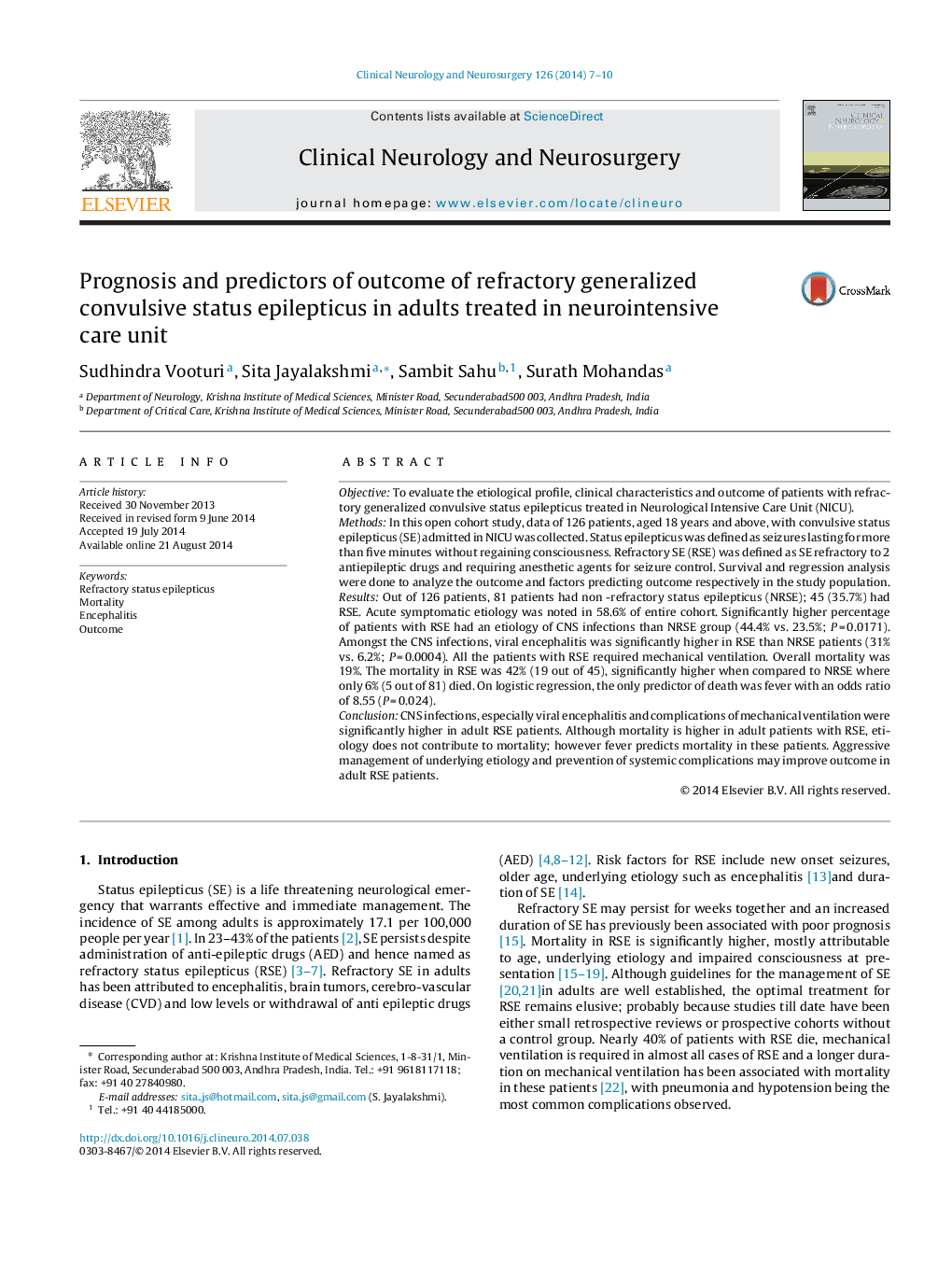| کد مقاله | کد نشریه | سال انتشار | مقاله انگلیسی | نسخه تمام متن |
|---|---|---|---|---|
| 3040006 | 1579696 | 2014 | 4 صفحه PDF | دانلود رایگان |
ObjectiveTo evaluate the etiological profile, clinical characteristics and outcome of patients with refractory generalized convulsive status epilepticus treated in Neurological Intensive Care Unit (NICU).MethodsIn this open cohort study, data of 126 patients, aged 18 years and above, with convulsive status epilepticus (SE) admitted in NICU was collected. Status epilepticus was defined as seizures lasting for more than five minutes without regaining consciousness. Refractory SE (RSE) was defined as SE refractory to 2 antiepileptic drugs and requiring anesthetic agents for seizure control. Survival and regression analysis were done to analyze the outcome and factors predicting outcome respectively in the study population.ResultsOut of 126 patients, 81 patients had non -refractory status epilepticus (NRSE); 45 (35.7%) had RSE. Acute symptomatic etiology was noted in 58.6% of entire cohort. Significantly higher percentage of patients with RSE had an etiology of CNS infections than NRSE group (44.4% vs. 23.5%; P = 0.0171). Amongst the CNS infections, viral encephalitis was significantly higher in RSE than NRSE patients (31% vs. 6.2%; P = 0.0004). All the patients with RSE required mechanical ventilation. Overall mortality was 19%. The mortality in RSE was 42% (19 out of 45), significantly higher when compared to NRSE where only 6% (5 out of 81) died. On logistic regression, the only predictor of death was fever with an odds ratio of 8.55 (P = 0.024).ConclusionCNS infections, especially viral encephalitis and complications of mechanical ventilation were significantly higher in adult RSE patients. Although mortality is higher in adult patients with RSE, etiology does not contribute to mortality; however fever predicts mortality in these patients. Aggressive management of underlying etiology and prevention of systemic complications may improve outcome in adult RSE patients.
Journal: Clinical Neurology and Neurosurgery - Volume 126, November 2014, Pages 7–10
